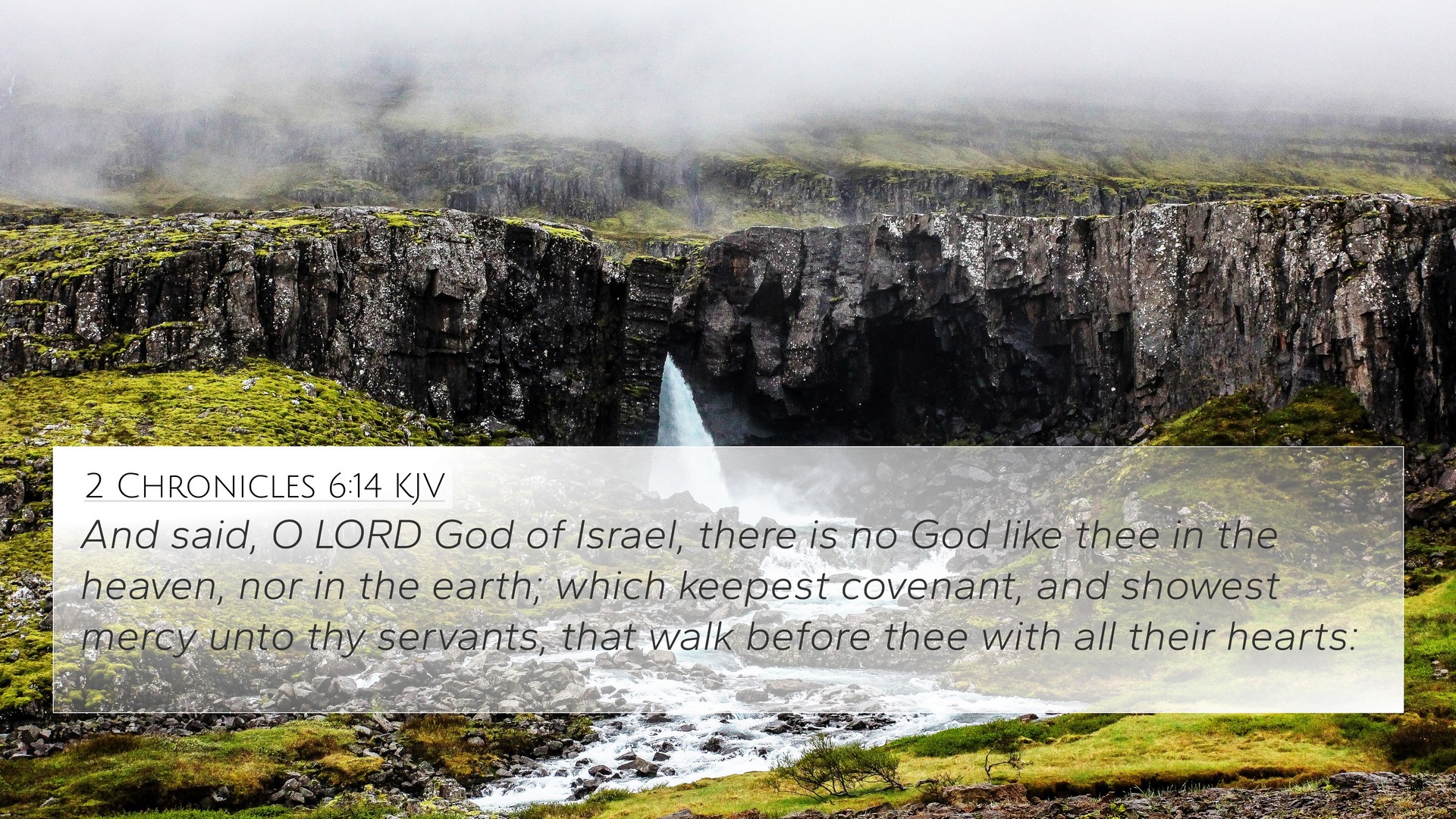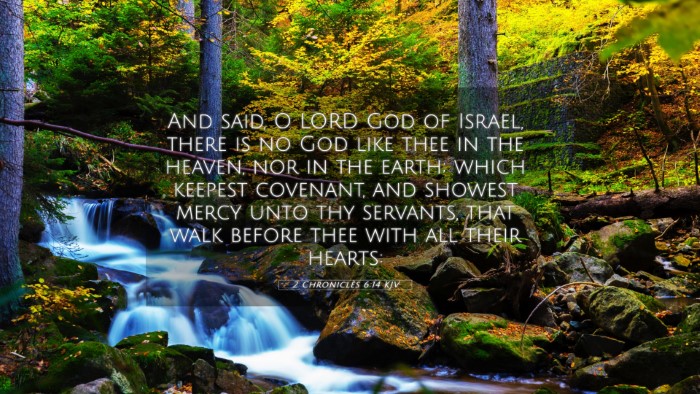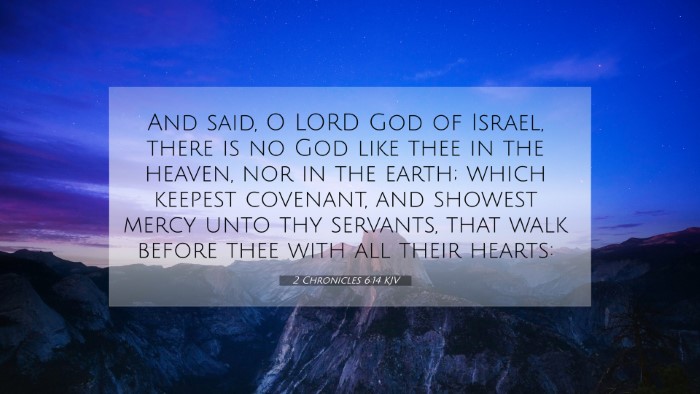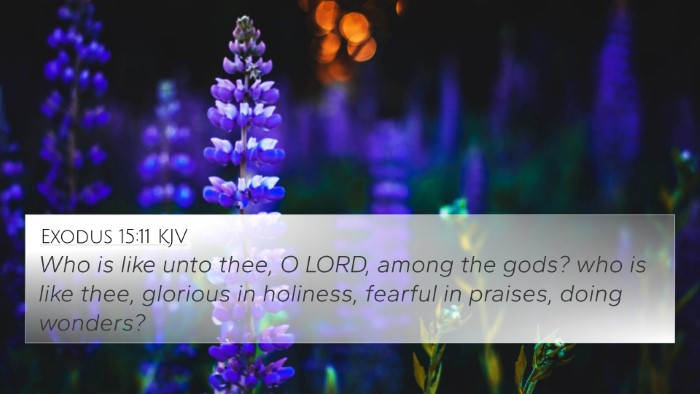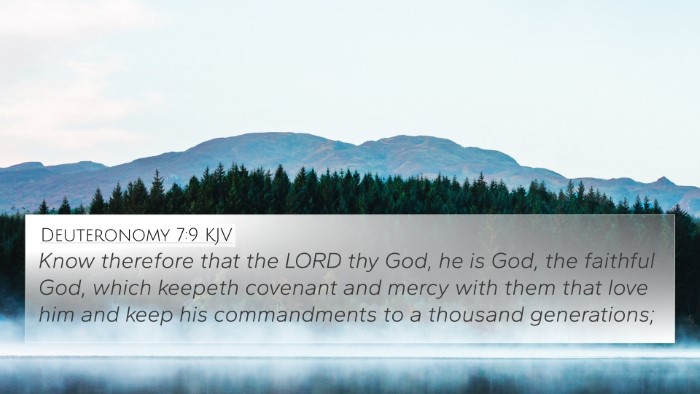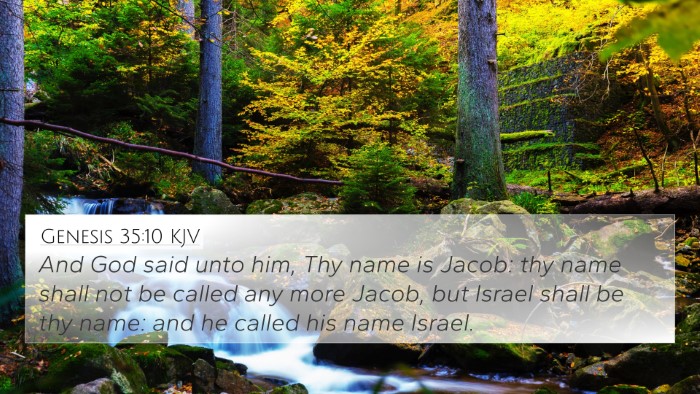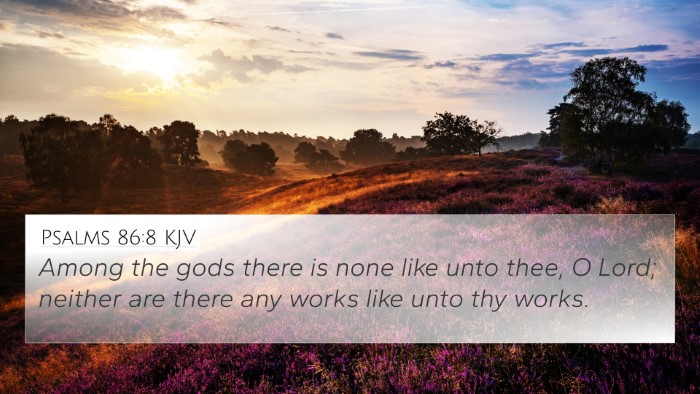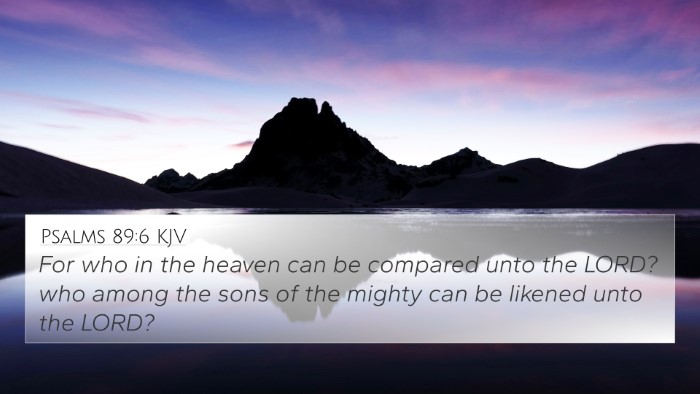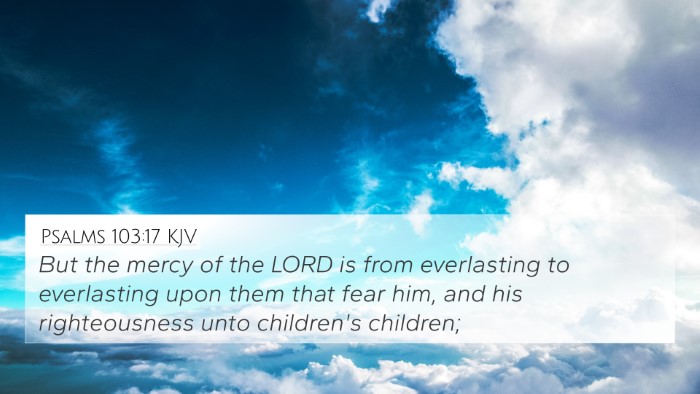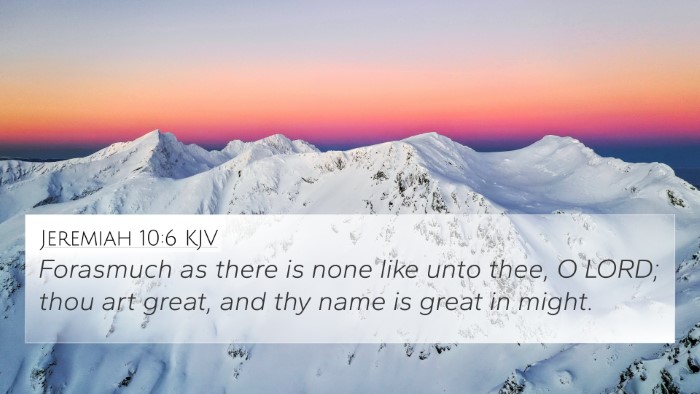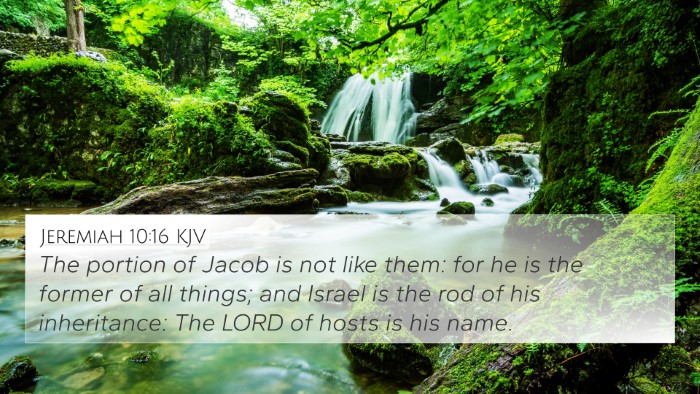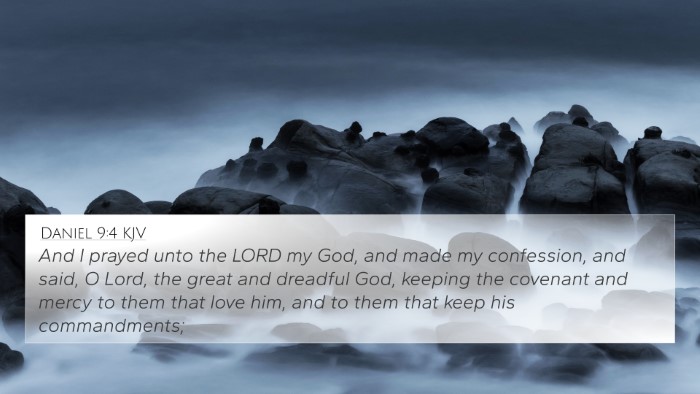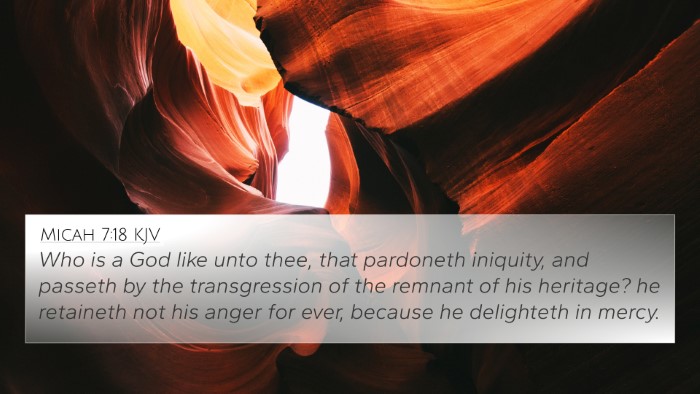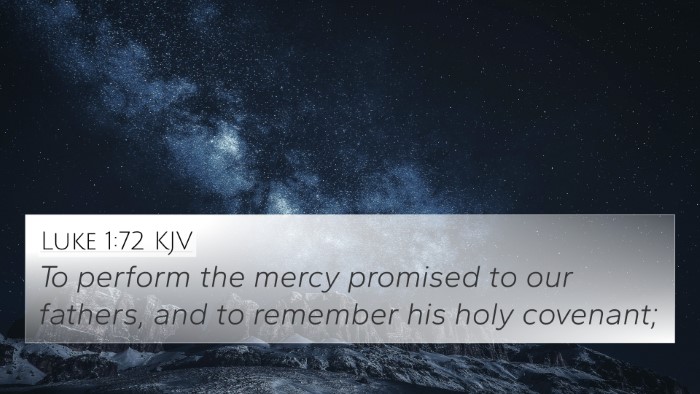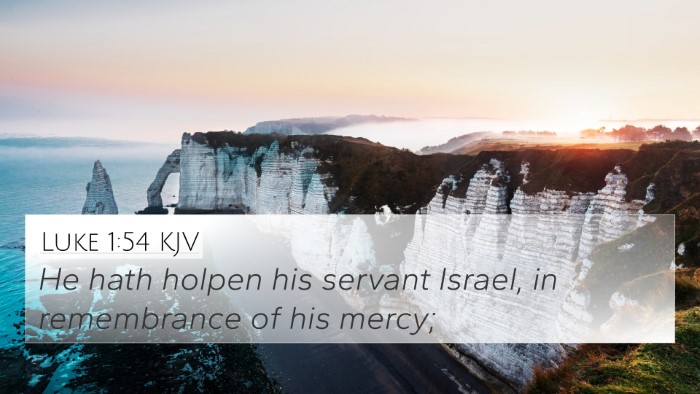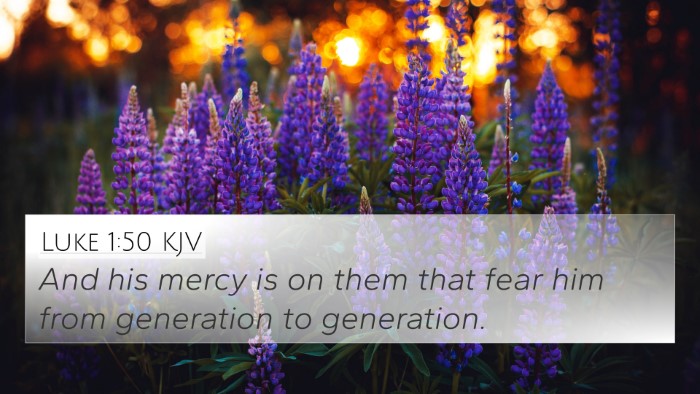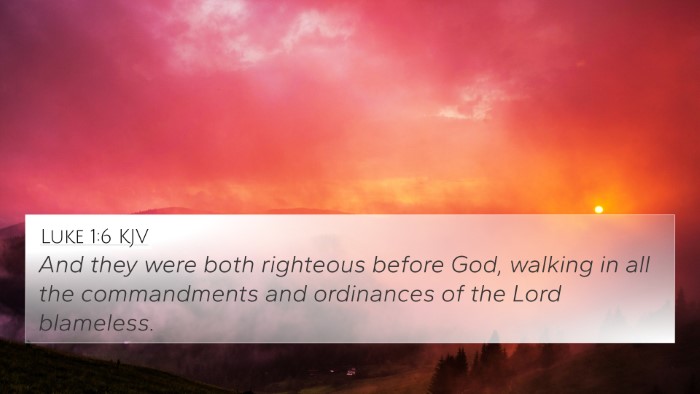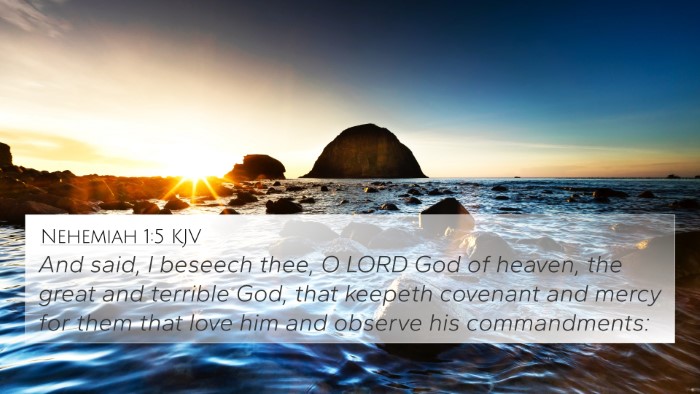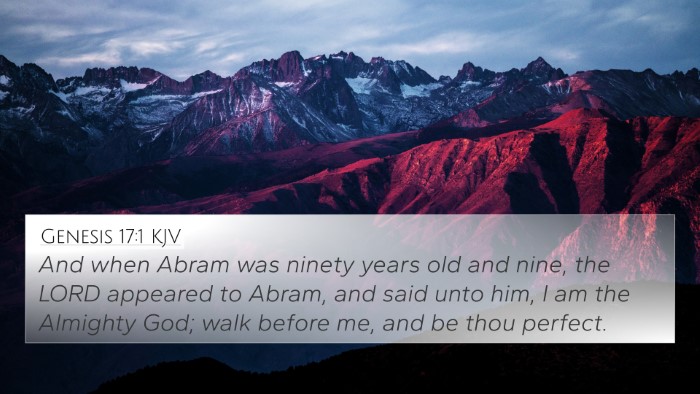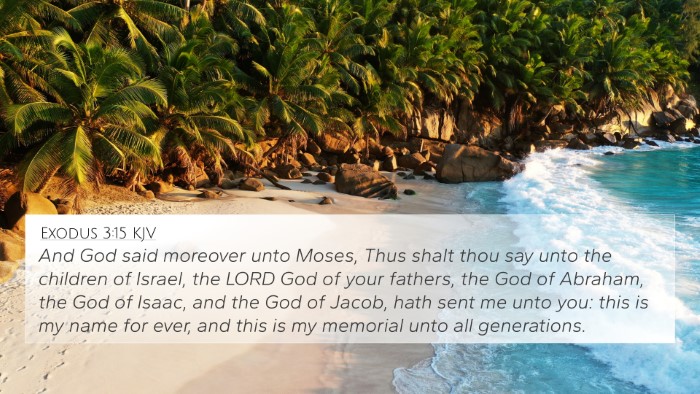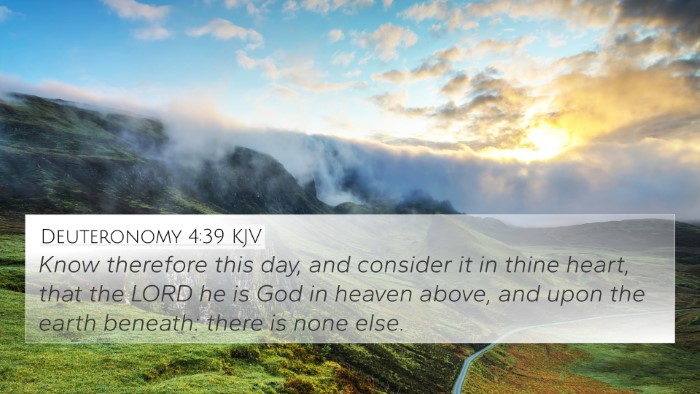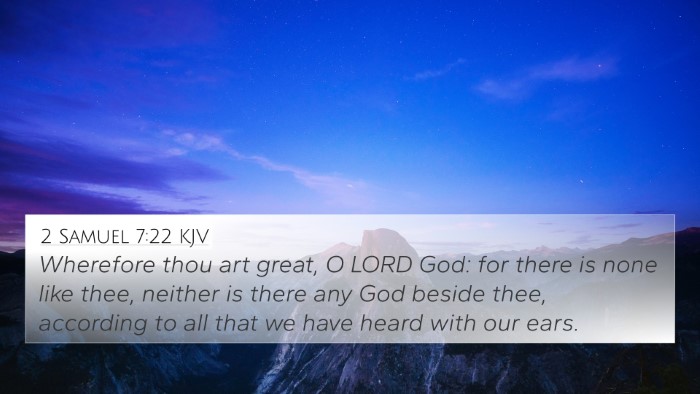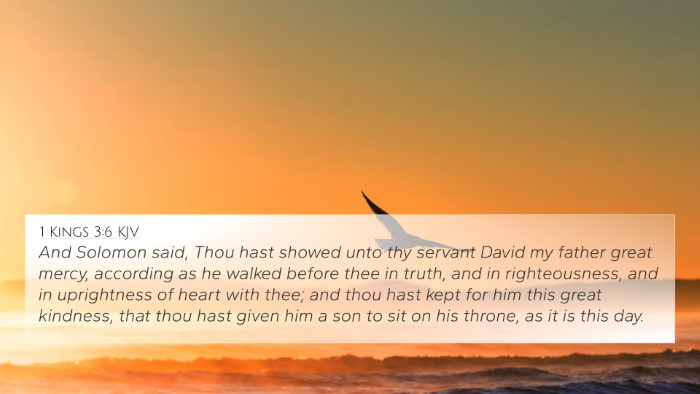Understanding 2 Chronicles 6:14
Verse Reference: 2 Chronicles 6:14 - "And said, O Lord God of Israel, there is no God like thee, in the heaven, nor in the earth, which keepest covenant, and showest mercy unto thy servants, that walk before thee with all their hearts."
General Overview
This verse is part of Solomon's prayer during the dedication of the Temple in Jerusalem. It highlights God's uniqueness and faithfulness in keeping His covenant with Israel, emphasizing His mercy towards those who are wholeheartedly devoted to Him.
Commentary Insights
Matthew Henry's Commentary:
Henry notes that Solomon's acknowledgment of God's singularity underscores the relationship between God and His people. He emphasizes that God's covenant is not merely a formality but a profound commitment accompanied by steadfast mercy. Solomon's prayer reflects a deep understanding of God's nature - He is unmatched in His power and commitment.
Albert Barnes' Commentary:
Barnes elaborates on the concept of God as the only true deity, stating that this verse serves as a reminder to all nations of God's supremacy. He also points out the significance of the covenant, which intricately links God's promises with the conduct of His people, depicting a relationship based on fidelity and devotion.
Adam Clarke's Commentary:
According to Clarke, the invocation of God's character is central to Solomon's plea. He remarks on the importance of walking before God with all one's heart, as this is where the essence of true faith lies. Clarke highlights the dual aspect of God's nature: His transcendence and His immanence, both crucial for understanding His dealings with humanity.
Theological Significance
This verse invites readers to reflect on the nature of God as both transcendent and compassionate. It reinforces the belief that maintaining a sincere and dedicated heart is essential for experiencing God's mercy and benefits under His covenant.
Cross-References
- Deuteronomy 7:9: "Know therefore that the Lord your God is God; he is the faithful God, keeping his covenant of love to a thousand generations of those who love him and keep his commandments."
- 1 Kings 8:23: "And he said, Lord God of Israel, there is no God like thee, in heaven above, or on earth beneath, who keepest covenant and mercy with thy servants that walk before thee with all their heart."
- Psalm 86:8-10: "Among the gods there is none like unto thee, O Lord; neither are there any works like unto thy works."
- Isaiah 40:25: "To whom then will ye liken me, or shall I be equal? saith the Holy One."
- Lamentations 3:22-23: "It is of the Lord's mercies that we are not consumed, because his compassions fail not. They are new every morning: great is thy faithfulness."
- Romans 9:15: "For he saith to Moses, I will have mercy on whom I will have mercy, and I will have compassion on whom I will have compassion."
- Hebrews 6:17: "Wherein God, willing more abundantly to shew unto the heirs of promise the immutability of his counsel, confirmed it by an oath."
Connections and Themes
Understanding 2 Chronicles 6:14 is enriched when cross-referencing it with other biblical texts. For instance, the repeated emphasis on God's covenant can be seen in multiple passages, such as Deuteronomy and the Psalms, where God is consistently portrayed as faithful to His word.
The themes of mercy and wholehearted devotion resonate throughout scripture, linking this verse to both the Old and New Testaments. By examining specific verses, we can observe how the Old Testament lays the foundation for New Testament teachings on God's character and our relationship with Him.
Tools for Bible Cross-Referencing
Utilizing a Bible concordance or a cross-reference Bible study can significantly enhance understanding of connections between scriptures. These tools provide invaluable resources for comparing biblical texts and themes, facilitating a more profound grasp of God’s message throughout the scripture.
Conclusion
2 Chronicles 6:14 serves not just as a declaration of God's character but as a template for understanding the relational dynamics between God and His people. By engaging with both the verse and its surrounding context, along with related scriptures, readers can cultivate a deeper knowledge of God's love and mercy.
